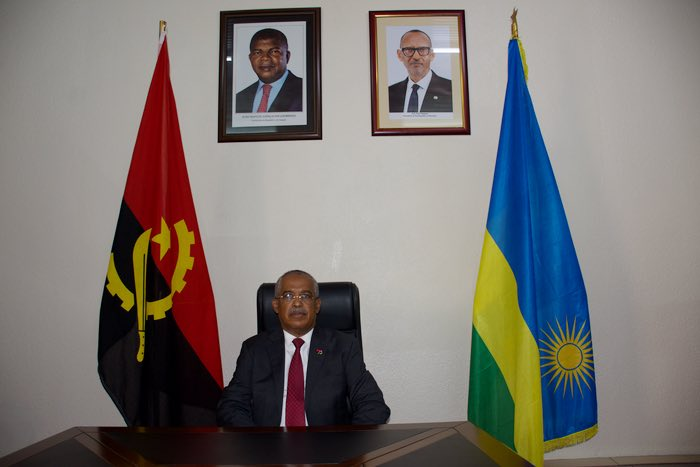
The Southern Africa Liberation Day holds significant importance within the SADC region’s calendar, symbolizing a pivotal moment in the ongoing struggle against colonial oppression and apartheid.
In a poignant message, Bárber Leiro Octávio, Angola’s Envoy to Rwanda underscored the profound significance of this day, the 23rd March, the Day of the Battle of Cuito Cuanavale.
The Battle of Cuito Cuanavale was the biggest military confrontation of the Angolan Civil War, which took place between 15th November 1987 and 23rd March 1988.
Southern Africa marked liberation day (23rd March) in honour of the heroes who defeated the South African fascist forces, putting an end to a real threat that called into question the existence of the region’s states as we know them today, cleverly designed by our political and military leaderships.
The events took place 35 years ago in the memorable battle of Cuito Cuanavale, in the province of Cuando Cubango.
Men and women brought all their knowledge into play in an organised and fearless way, acting against an invasion whose aim was to perpetuate the apharteid system in the Southern Region and maintain all forms of racial segregation.
The idea was to subjugate the people, bury their political ambitions, take away their sovereignty and deprive them of the right to life. Some were on the wrong side of history, they used their knowledge of the territory to lead the offensive of the forces of evil into the country.
They were defeated. Reason prevailed. The Angolan forces at the time, organised under the FAPLA banner, imposed a humiliating defeat on the enemy. From then on, with the depth of the blow, there was no way to resist the consequences, everything collapsed. Then came the capitulation and all that is known.
The battle of Cuito Cuanavale was significant, surpassing the fighting of the Second World War, according to Western and American experts.
The concentration of resources in a single place, the operations, and the intensity of the fire cannot be matched. It was a war. And because of the circumstances, whenever the battle is mentioned, as historian Miguel Júnior said, the strategic and tactical details must be mentioned.
Our heroes deserve such an honour. It is proof that Angolans know the value of sovereignty, of the right to self-determination. They know the value of harmonious coexistence in the international arena.
On this occasion, At the time, the Head of State of Angola, His Excellency João Manuel Gonçalves Lourenço, is committed to the pacification of the continent, particularly in the DRC and the Great Lakes Region. For his leadership, the African Union awarded the Angolan President the title of Champion of Peace.
The defeat of the South African army at Cuito Cuanavale in Angola was also the beginning of the end of the Apartheid regime in South Africa.
It was within this framework that the Namibian people proclaimed their independence on 21st March 1990.
For this reason, the “Battle of Cuito Cuanavale” has become part of the recent history of Angola and Africa, in particular the Southern Africa region, whose member states adopted 23rd March as the ” Southern Africa Liberation Day”.
